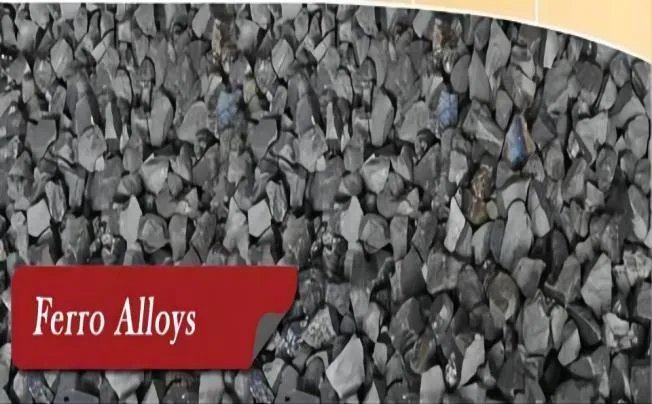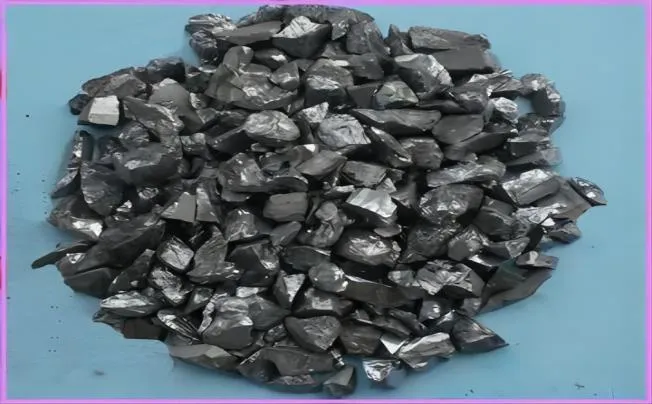Metal Silicon Testing Methods And Testing Standards
Smelted in an electric furnace from quartz and coke, metallic silicon is the end product. About 98% of it is silicon, with the remaining impurities being calcium, iron, and aluminium. Metallic silicon is elemental silicon that has been industrially purified. It is primarily used to make organic silicon, high-purity semiconductor materials, and alloys for specific uses. Additionally, metallic silicon is frequently employed as a reducing agent in the smelting of numerous metals and as an alloying element in the steel industry when smelting ferrosilicon alloys.
Method of detection
Spectrophotometry, ion emission spectrometry, spark direct reading spectrometry, halogen element analysis, the titration method, and other techniques are the primary methods used to identify metallic silicon. Among these, spectrophotometry is a frequently used experimental technique in biochemical research due to its advantages of high sensitivity, ease of use, and quickness. Visible light photometers, ultraviolet spectrophotometers, and infrared spectrophotometers are examples of detection instruments.
Testing Standards
The standardised processes and rules for evaluating the attributes and qualities of metal silicon materials are referred to as metal silicon testing standards.
ASTM A370: Mechanical Testing of Steel Products: Standard Test Procedures and Definitions
Standard Test Procedures for Tension Testing Cast and Wrought Aluminium and Magnesium Alloy Products (ASTM B557)
ASTM C39: Typical Test Procedure for Cylindrical Concrete Specimens’ Compressive Strength
ASTM E350: Typical Test Procedures for Chemical Examination of Carbon Steel, Silicon Electrical Steel, Low-Alloy Steel, Ingot Iron, and Wrought Iron
Applications Of Silicon Metal 2502
- Alloying Addition in Iron and Steel Manufacturing: Silicon Metal 2502 is frequently added during the alloying process in the manufacturing of iron and steel. It is applied to the metal in order to enhance its resistance to oxidation, heat, and hardness. Integrated steel factories, also help with deoxidation throughout the steel-making process.
- The Refractory Material and Power Metallurgy Industries: Silicon Metal 2502 finds application in the aforementioned industries. It improves the resistance to heat, wear, and oxidation of these materials.
- fundamental Raw Material for High Polymer of Organic Silicon Formatting: The production of high polymer organic silicon compounds uses silicon metal 2502 as a fundamental raw material. It is employed in the creation of silicone compounds, which are used in a number of sectors, including electronics, construction, and the automobile industry.
- Additives for Iron Base Alloys: Silicon Metal 2502 is a suitable addition for iron base alloys. It is used in silicon steel pharmaceutical alloys to enhance the steel’s hardenability and other characteristics.
- Additional Uses: Although Silicon Metal 2502’s specific uses aren’t covered in-depth in the search results, it’s important to remember that silicon metal has a lot of uses overall. Silicone rubber, semiconductors, solar cells, lubricants, greases, and aluminium alloys are among the many products made with it.
Characteristics Of Silicon Metal 2502
Composition: The amount of impurities, such as iron, aluminium, and calcium, determines how Silicon Metal 2502 is categorised. The percentages of iron and aluminium are represented by the first two digits in the classification, while the percentages of calcium content are represented by the third and fourth numbers.
Physical Description: Silicon Metal 2502 has a metallic sheen and is characterised as a silver-grey or dark-grey powder. It has a high melting point and is a hard solid.
Heat Resistance: Silicon Metal 2502 is a good heat-resistant material that may be used in the power metallurgy and refractory material sectors.
Oxidation Resistance: Silicon Metal 2502 exhibits exceptional resistance to oxidation, making it suitable for exposure to extreme heat and challenging conditions.
Additive for Non-Ferrous Alloys: Iron base alloys and other non-ferrous alloys are frequently treated with Silicon Metal 2502 as an additive. It can enhance the alloys’ resistance to heat and hardness, among other qualities.
Basic Raw Materials for Organic Silicon Compounds: High-polymer organic silicon compounds are formed from silicon metal 2502, which is the basic raw material. It is employed in the synthesis of silicone compounds, which are used in a variety of sectors.





